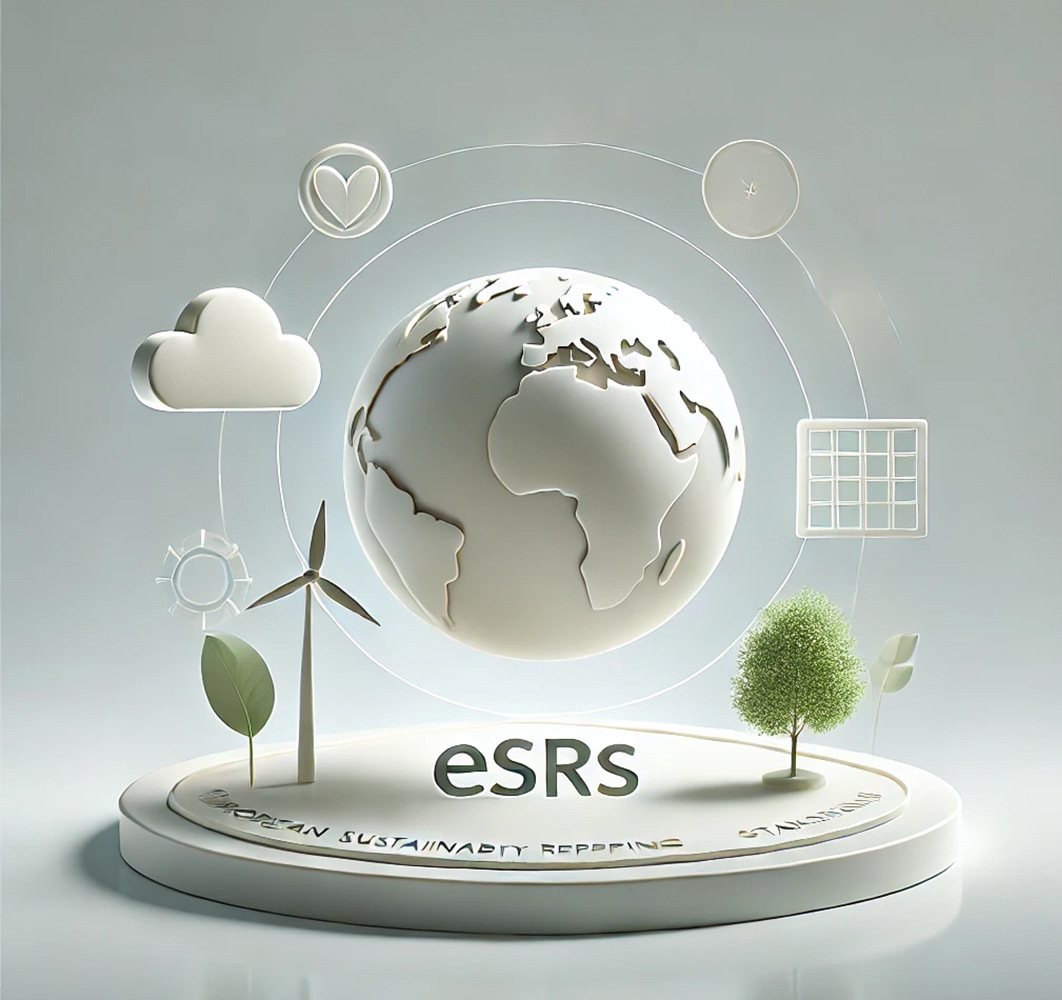ESRS stands for Environmental, Social and Governance Reporting Standards. These standards help companies measure and report their environmental, social and governance performance and provides a framework for complying with CSRD requirements. This article offers a comprehensive explanation of what ESRS is and why it is important for your business.
Definition and rang
ESRS guidelines help companies measure and improve their sustainability performance. The ESRS provides a framework for collecting, analyzing, and reporting data on environmental, social, and governance factors.
The ESRS helps companies be transparent about their sustainability efforts. This not only benefits the environment and society, but also enhances the company's reputation. Transparency about sustainability practices can lead to increased stakeholder trust, better access to capital and a competitive advantage.
Main components of the ESRS
The ESRS consists of three main components: environmental, social and governance.
Environment
- Environmental factors focus on a company's impact on nature.
- This includes energy management, waste management and water use.
Social
- Social factors relate to the company's impact on people and communities.
- This includes working conditions, human rights, diversity and inclusion.
Governance
- Governance factors refer to the internal processes and rules a company follows.
- This includes ethical governance, transparency and compliance with laws and regulations.
Implementation of the ESRS
Implementing the ESRS involves four main steps: data collection, analysis and evaluation, reporting and continuous improvement.
Data collection involves collecting relevant data on environmental, social and governance factors, using reliable data collection sources and methods.
Analysis and evaluation involve analyzing the collected data to identify trends, patterns and evaluate performance against ESRS standards.
Reporting involves reporting the findings in a transparent and understandable manner, using standardized formats to ensure consistency.
Continuous improvement involves using the reporting to identify areas for improvement and creating action plans to improve performance.
Advantages of the ESRS
Implementing the ESRS offers several benefits to companies:
- Improved transparency and accountability
- Increased stakeholder confidence.
- Increased access to capital
- Strengthened reputation and brand equity
- Insight into risks and opportunities
- Improved operational efficiency
The ESRS and the CSRD
CSRD stands for Corporate Sustainability Reporting Directive. This is a European directive that requires companies to report on sustainability information. The ESRS provides a framework for companies to comply with CSRD requirements. By implementing the ESRS, companies can ensure that their sustainability reporting complies with European standards.
Starting with the ESRS and the CSRD?
We have developed a very useful toolkit that takes you step-by-step through what you need to do and gives you the tools through in an intuitive Excel sheet. Download it now here.
Our toolkit helps companies easily get started with the ESRS and the CSRD. It provides clear guidelines and practical tools to go through each step of the process.
Stay up to date
Stay up to date on all new developments? Follow us on LinkedIn and Instagram or subscribe to the newsletter. Are you curious about what Milgro can do for your operations and waste process? If so, please contact on.













